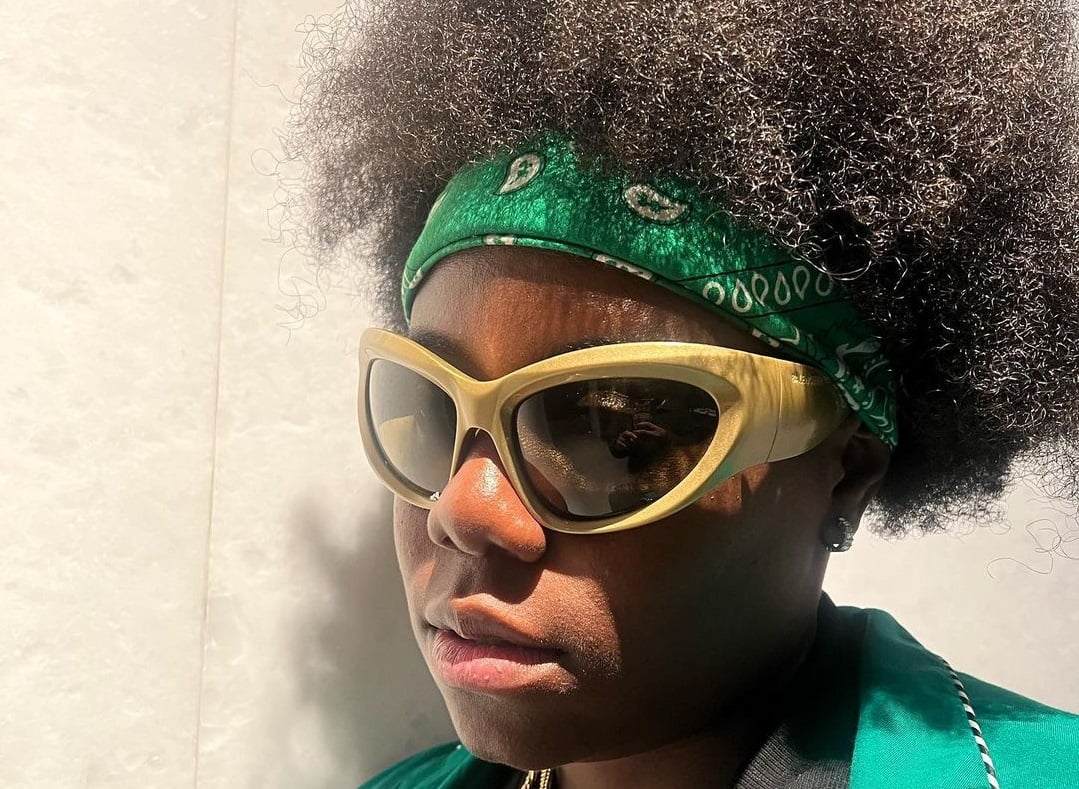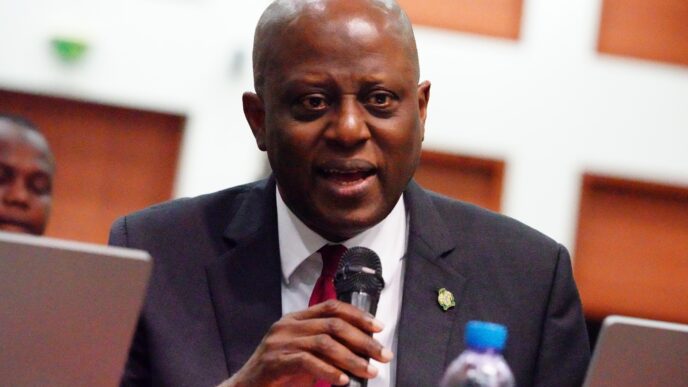Teni Apata: My dad was murdered in my presence when I was 2
BY OGUNGBILE OLUDOTUN
The first time I listened to Teniola Apata’s latest song titled “Money”, I was immediately drawn in by its rhythm, a smooth, hypnotic blend of melody and confidence. It had the kind of sound that could make anyone nod along absentmindedly, lost in its easy charm. But then, as the lyrics unfolded, I found myself frozen in thought. Something about the lyrics unsettled me. The song wasn’t just about money, it was an open contradiction, a reflection of a dangerous ideology that has abducted the society controlled mostly by the millennials and Generation Z.
Teni sings about wealth in a way that is both self-aware and troubling. She acknowledges that money cannot buy happiness, yet she declares her unapologetic desire for all the money in the world. This paradox wasn’t just lyrical flair, it was a statement that reflected the unsettling truth of our generation. The more I listened, the harder it became to embrace the song’s meaning without questioning the implications of its words. Was this simply a reflection of modern-day materialism, or was it an unintentional endorsement of the reckless pursuit of wealth at any cost? I couldn’t ignore these questions, and so, I was challenged to make a deeper critique, not just of the song, but of the thoughts behind it.
I realised that at the heart of her song is an unfiltered celebration of materialism, a belief that money is not just important, it is everything. When Teni sings, “I’d rather be crying in a Bentley, sipping on Hennessy”, she makes a bold statement: she would rather experience pain in luxury than suffer in poverty.
Advertisement
This line pictures a popular saying, “I’d rather cry in a Mercedes than smile on a bicycle.” But does Teni truly believe this? Does she genuinely think that material wealth is a substitute for true happiness? Or is she simply reflecting the mindset of a society where money determines respect, comfort, and influence?
Whether intentional or not, her lyrics endorse the widespread belief that financial power trumps all other virtues. In a world where poverty is often equated with failure, “Money” indirectly approves the idea that any means of acquiring wealth, legal or illegal is justifiable.
But does Teni think about the consequences of such a message? Does she consider how many young people will internalise her words and justify fraudulent activities or risky ventures in the name of financial success?
Advertisement
Another critical theme in her song is escapism, the illusion that wealth shields one from life’s pains. Teni paints a picture of luxury, Ibiza vacations, high-end fashion, and limitless spending, but even within this dreamlike world, she admits to emotional struggles: “Feeling down in Fendi, sad but I got plenty.”
This is where her message becomes confusing. She acknowledges that money does not eliminate emotional suffering, yet she insists on pursuing wealth above all else. Is this an honest reflection of her own internal contradictions? Is she telling us that despite knowing money won’t bring fulfilment, she still wants it because it makes life easier?
Or is she, like many others, trapped in the illusion that financial success is the only path forward, even when it does not guarantee peace? If Teni herself, despite her fame and fortune, still sings about emptiness, should that not serve as a warning to her audience rather than an encouragement to keep chasing wealth?
She also highlights the deep societal pressure to attain wealth as a measure of success. In Nigeria and many parts of the world, financial status dictates social respect. The lyrics “You know that we global, bitch I’m here” reflect the modern belief that wealth is not just about survival, but about dominance, validation, and recognition.
Advertisement
But here’s the real question: Does Teni believe that money is the only way to earn respect? If she does, then she is reinforcing a toxic culture where success is defined solely by wealth. In today’s digital era, where social media has intensified the pressure to display riches, young people now measure their value not by intellect, impact, or character, but by the luxury they can flaunt.
If Teni does not believe this, then why doesn’t her song challenge this idea? Why doesn’t she offer an alternative narrative? Why does Money not explore what happens to those who fail in this financial rat race or to those who get rich but remain unsatisfied?
If she has reached this level of success and still finds herself yearning for all the money in the world, then what does that say about the true nature of wealth?
Perhaps the most striking theme in “Money” is Teni’s recurring admission that wealth does not bring true fulfilment. She openly states: “Money don’t buy you happiness, Money can’t buy you love, Money don’t fill this emptiness.”
Advertisement
Yet, despite this realisation, her response remains unchanged: “But I want all the money in the world.” Why does Teni contradict herself? Does she recognise the hollowness of material wealth but still feel powerless to resist its allure? Is she admitting that despite knowing money is not the answer, she has no alternative?
This contradiction is not just a lyrical choice, it is a psychological reality. Many people recognize that money alone cannot bring fulfillment, yet they remain trapped in its pursuit. If even a successful artist like Teni feels this way, then what hope is there for the average youth who has not yet “made it”? Her lyrics reveal a harsh truth: even those who attain wealth still feel empty. But instead of offering a solution, she resigns herself to the chase, leaving her audience to do the same.
Advertisement
Again, Teni’s Money is more than just a song, it is a social commentary disguised as an anthem, but one that ultimately falls short of challenging the system it describes. While she captures the realities of financial desperation, material obsession, and the illusion of fulfillment, she does not offer a deeper perspective. Instead, she embraces the pursuit of wealth, even when acknowledging its emptiness.
The real question Teni must ask herself is: Does she truly believe money is the answer, or is she simply expressing the struggle of a generation that has been left with no other choice? If she knows that wealth does not bring true happiness, why does her song glorify the chase rather than challenge it? If she recognizes the pain that comes with an unfulfilled life, why doesn’t she explore what true fulfillment looks like?
Advertisement
As a public figure, her words carry weight. Her music shapes perspectives. “Money” is not just entertainment; it is an ideology being broadcast to millions. And if that ideology is one of blind materialism, then she must take responsibility for the message she is spreading.
A generation that believes money is the only solution is a generation that will do anything to get it. This is how societies collapse when ethical boundaries are erased in the name of financial survival.
Advertisement
So, Teni, I ask you: If money is not the answer, then what is? Until that question is answered, the world will keep chasing a mirage, running after a currency that can buy everything except the one thing we truly seek: peace.
Ogungbile Emmanuel Oludotun can be contacted via [email protected]
Views expressed by contributors are strictly personal and not of TheCable.








